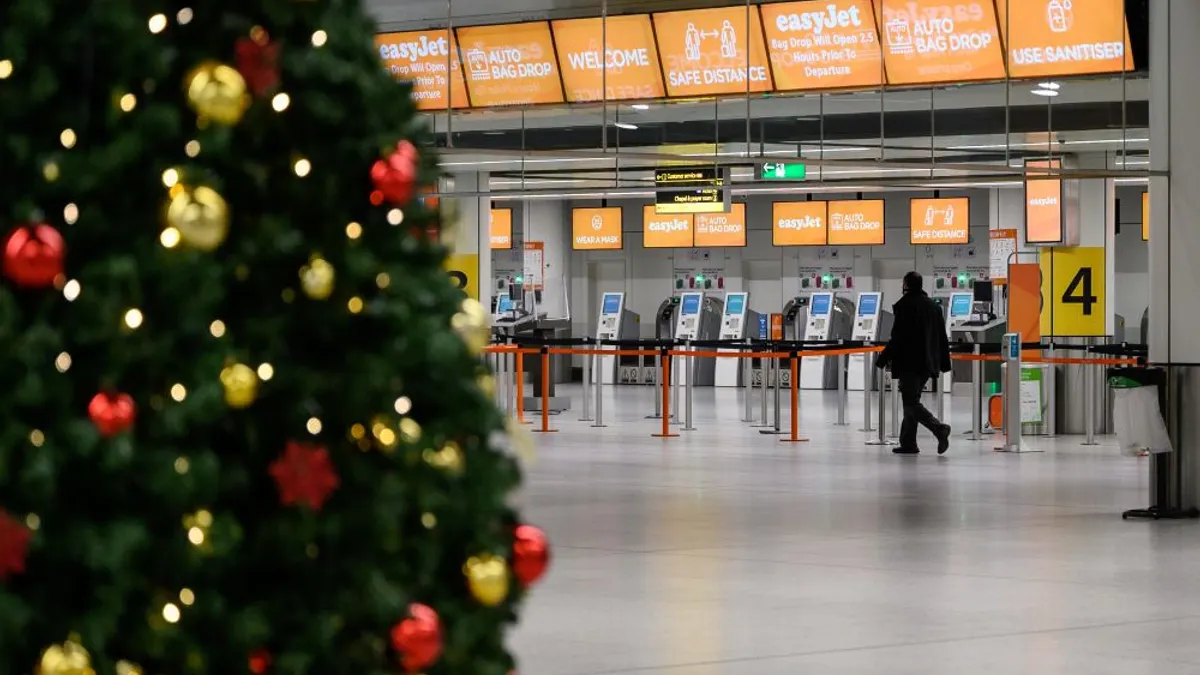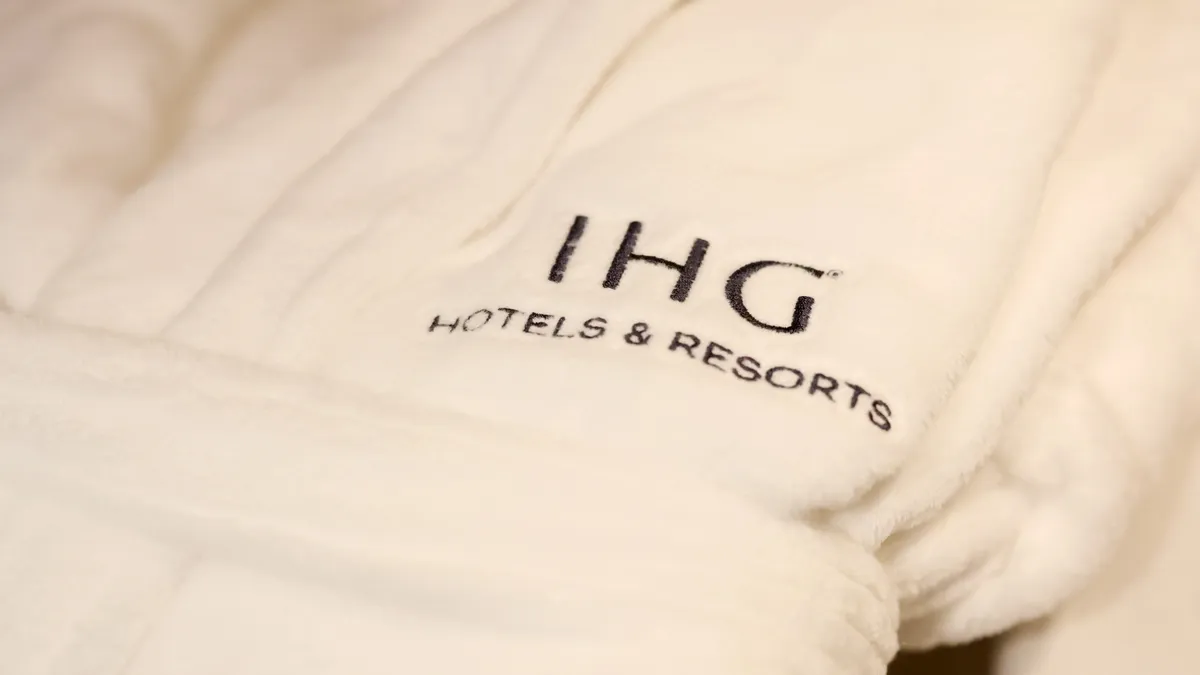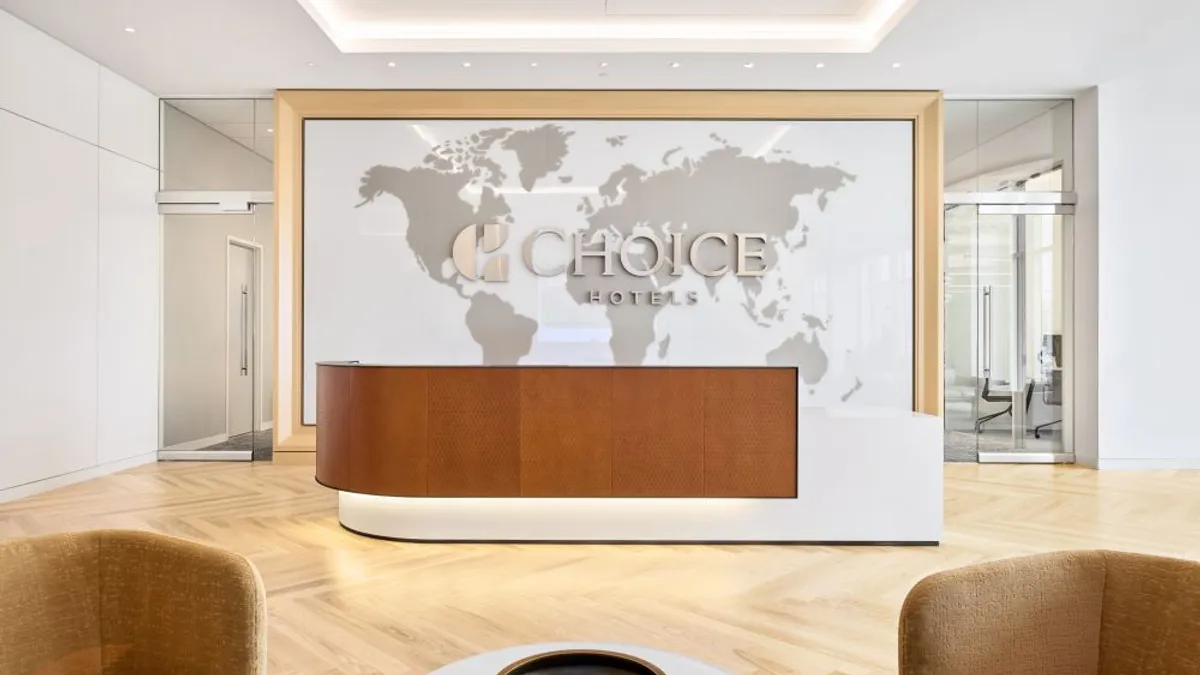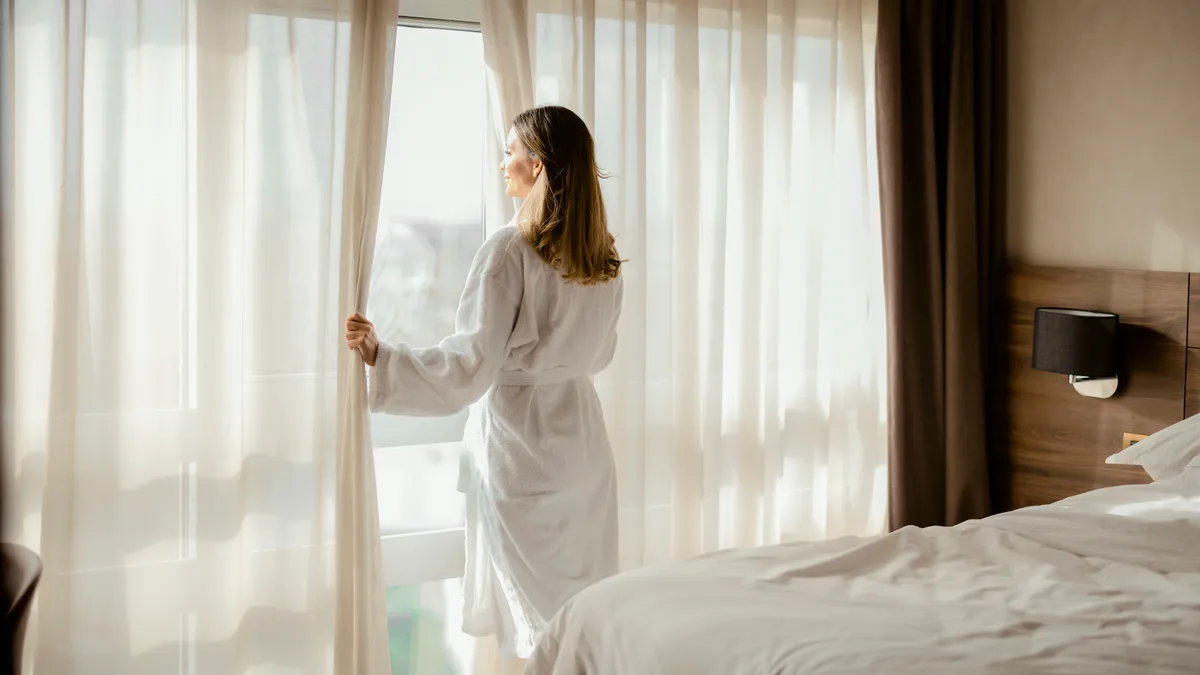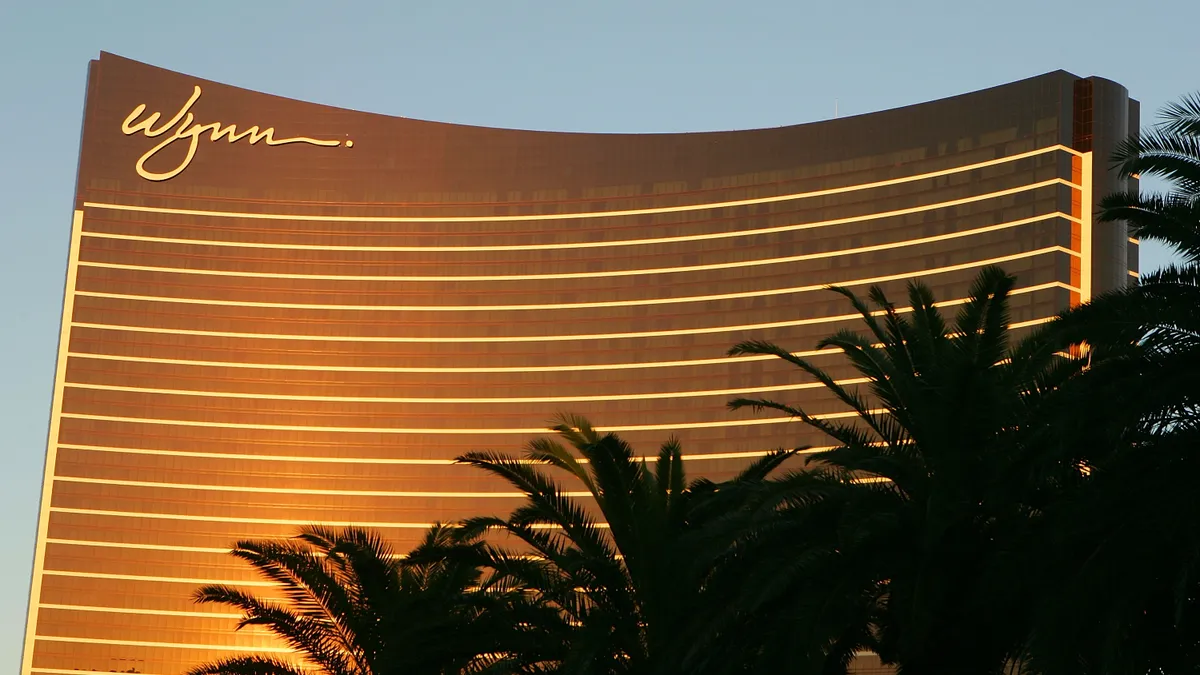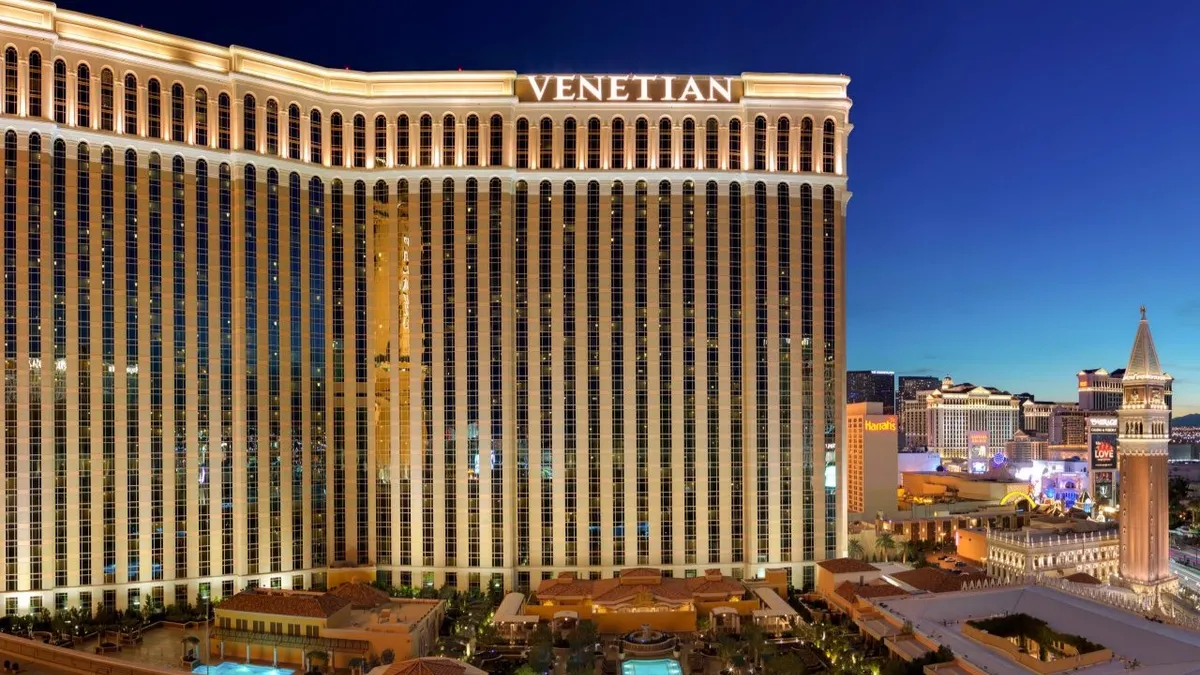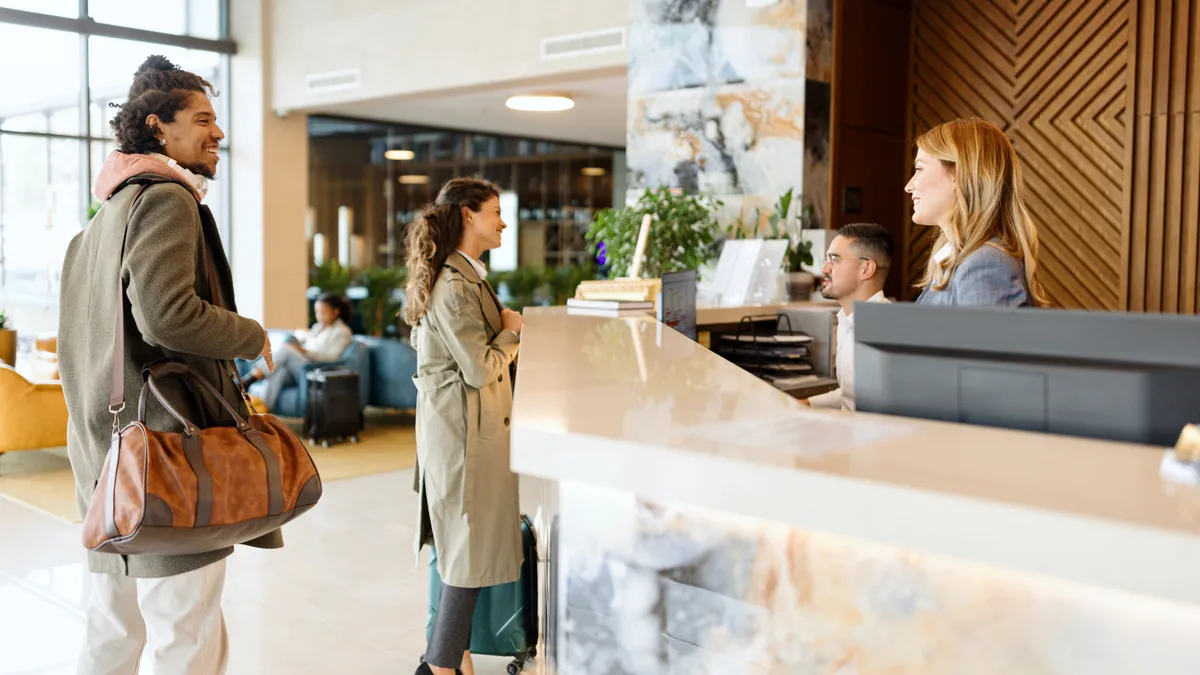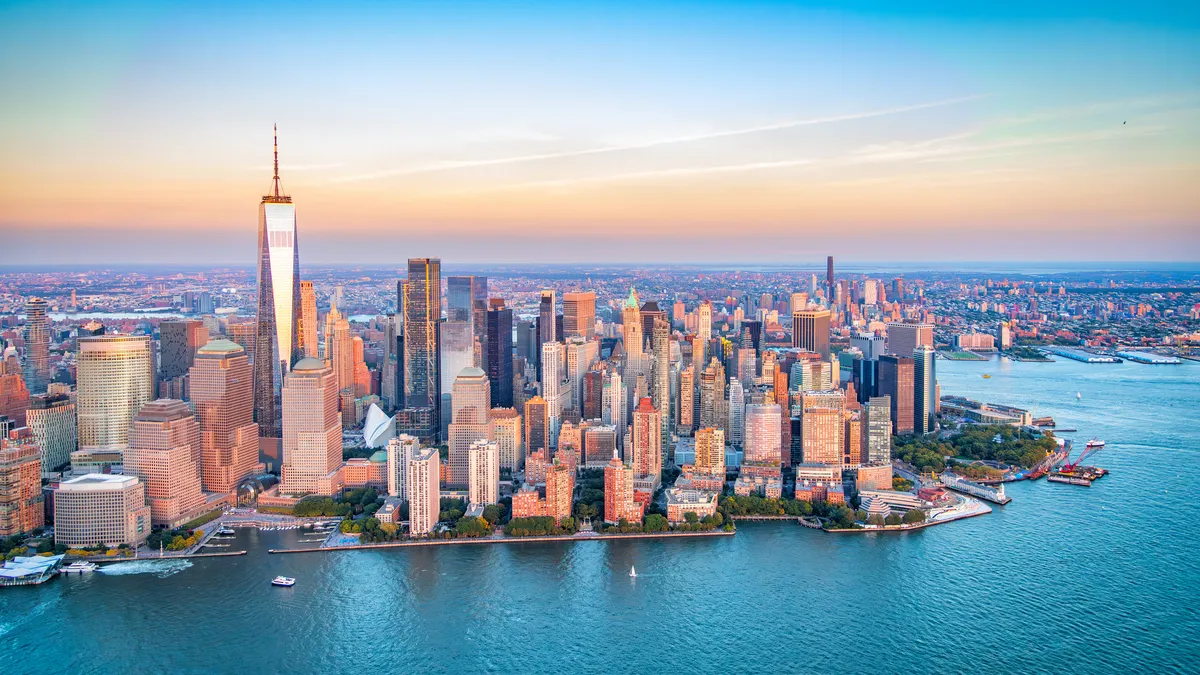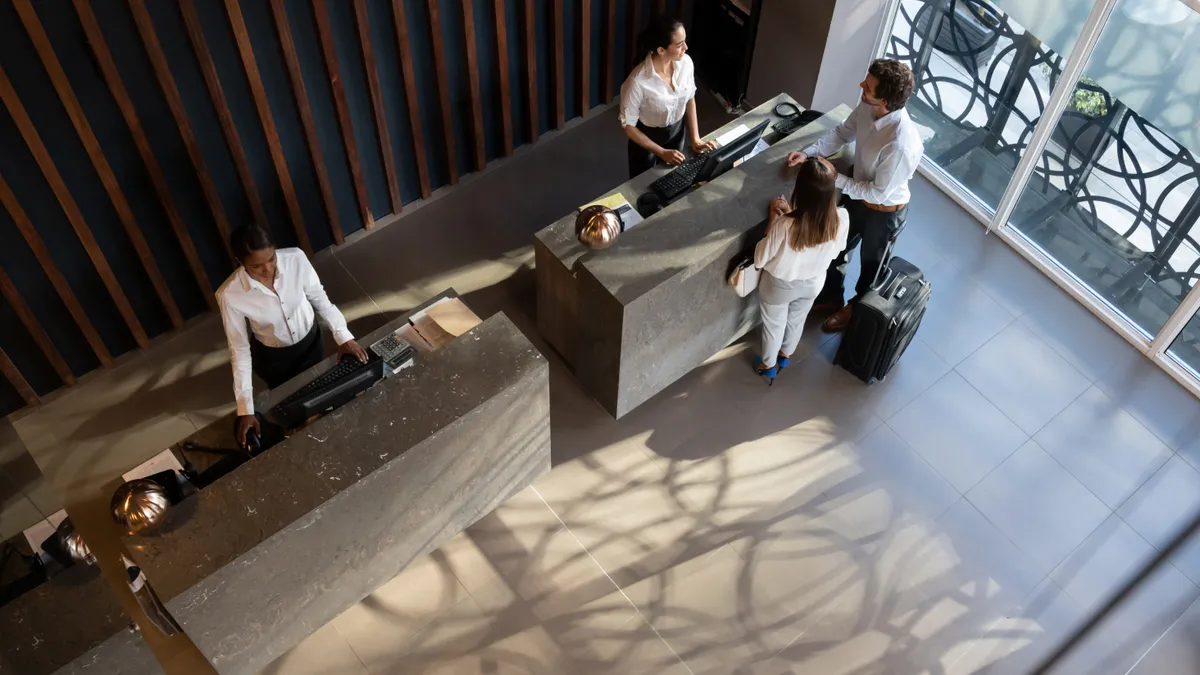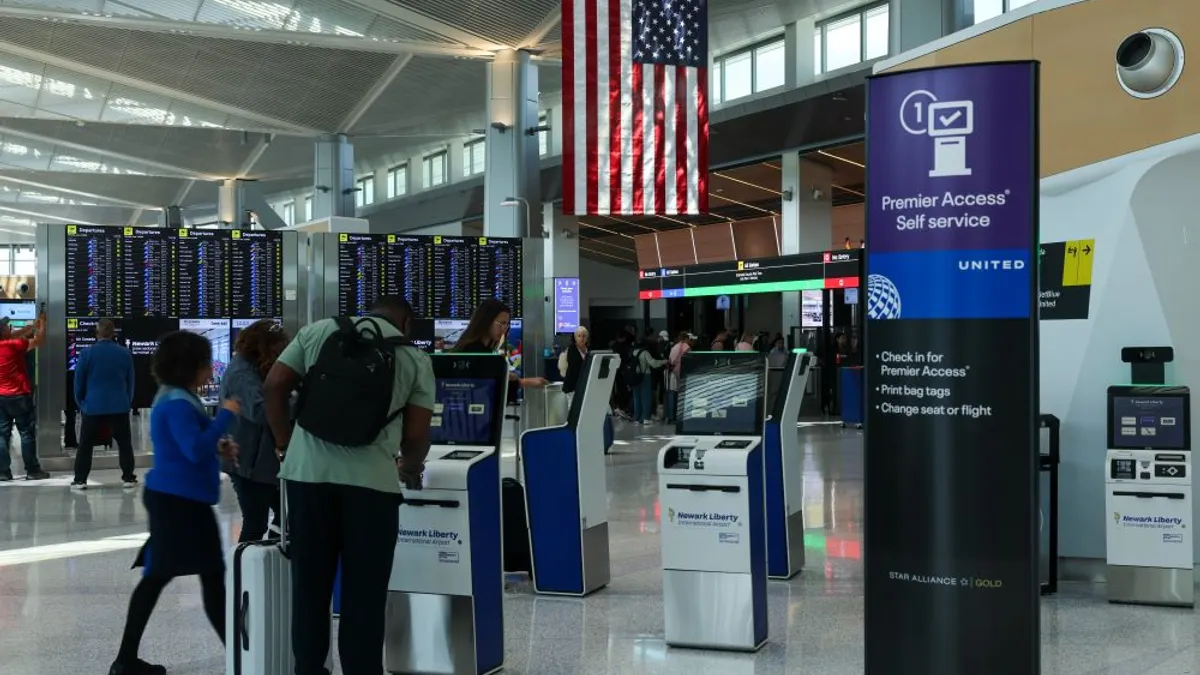Although more than half of Americans are planning to travel this holiday season, they are planning fewer trips than last year, according to the 2025 Deloitte Holiday Travel Survey.
Average planned travel budgets are down 18% to $2,334, according to the report, with more Americans intending to stay with friends and family rather than paid accommodations for trips taken between Thanksgiving and early January. As such, the percentage of U.S. holiday travelers planning to stay at a hotel at some point during the holiday season has dropped to 59%, compared to 62% in 2024.
The survey results come amid a challenging time for the U.S. hospitality industry, following Q3 RevPAR declines and widespread economic uncertainty. Per Deloitte, with trip length, trip frequency and travel budgets all down this year compared to last, hospitality providers could continue to see “weak” RevPAR performance this winter.
Sixty-three percent of travelers in Deloitte’s report said price is “among the top three selection criteria for their longest-trip lodging, more than twice the rate for any other property attribute.”
Tightening travel budgets
According to the report, nearly all demographic groups plan to spend less on travel this holiday season. Even high-income Americans, meaning those with annual household incomes of $100,000 or more, “are trading down, opting for shorter stays, fewer flights, and less luxurious lodging.”
Among that group, 19% said they feel worse off in 2025, up from 13% in 2024. Per Deloitte, this “concentration of caution among high earners, who tend to take more trips and spend more on them, could have an outsized impact on travel spending.”
This holiday season, 74% of high-income travelers are planning short getaways of one week or less, up from 67% in 2024. Just 5% of the cohort is opting for extended trips of two weeks or more.
Premium demand opportunities
A wealth bifurcation in hospitality is also at play, as discussed at this year’s Lodging Conference.
One in four respondents — 26% — met Deloitte’s threshold for luxury travelers, meaning travelers who have stayed at a property they consider luxurious in the past two years, and who have stayed at a hotel with a nightly rate of $400 or more during at least two leisure trips in 2025.
These well-heeled travelers are “twice as likely to book first-class air tickets, and when choosing a hotel, they place greater weight on customer service and loyalty memberships,” per the report. “In a more frugal holiday travel season, luxury travelers appear to represent an opportunity to sustain premium demand” by catering to their desire for high-end experiences, top-level service and a savvy use of loyalty programming, Deloitte said.
Among luxury travelers, room comfort (42%) and service quality (42%) are by far the attributes they most associate with luxury accommodations.
However, there are generational differences in what luxury travelers value, which hotels should note to help understand their needs, said Deloitte.
For example, Generation Z luxury travelers tend to link luxury to room comfort and amenities such as a spa or fitness center. Millennials, who travel with children more than any other generation, associate luxury with fine dining. Baby boomers, on the other hand, are most impressed by brand names and “extraordinary locations.”
Changing guest demographics
Gen Z and millennial travelers are expected to make up half of the traveling public for the first time in the 2025 holiday season. About one in three travelers is expected to be a millennial, comprising the highest-spending generation with an average holiday travel budget of $2,602.
Meanwhile, more than half of Gen Z respondents said they use “short social video platforms” for travel research, and millennials have led the adoption of generative artificial intelligence for trip planning, with use of the technology jumping 1.5 times since 2024.
The 2025 Deloitte Holiday Travel Survey polled 3,896 Americans from Sept. 26 to Oct. 3. Of these, Deloitte said that 2,099 of the respondents who are planning to travel between Thanksgiving and mid-January qualified as “holiday travelers.”


